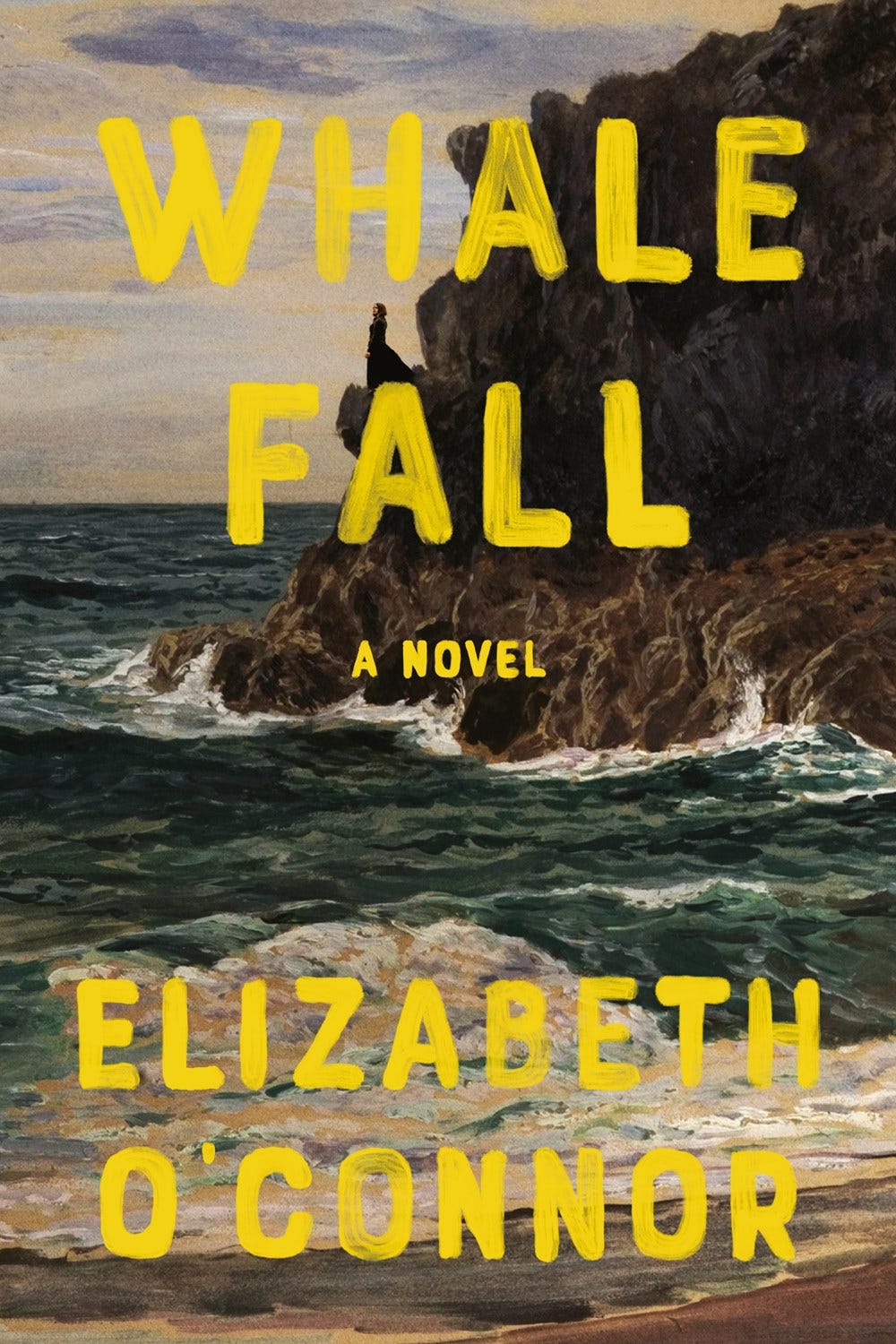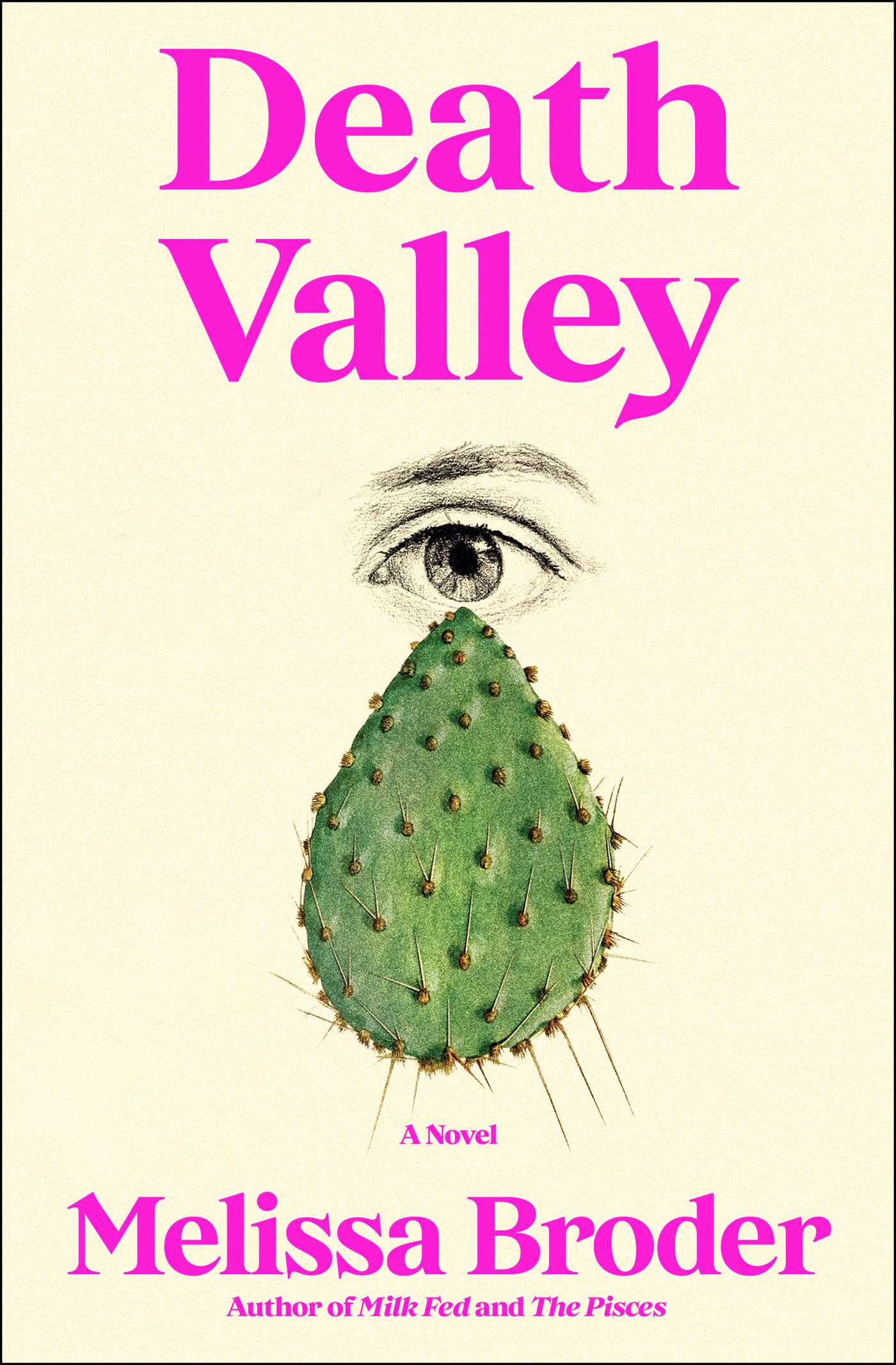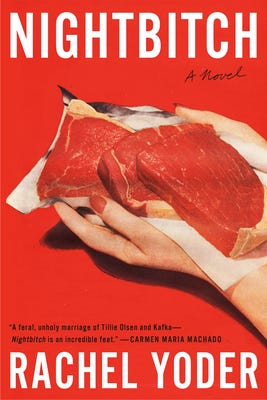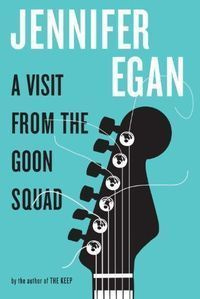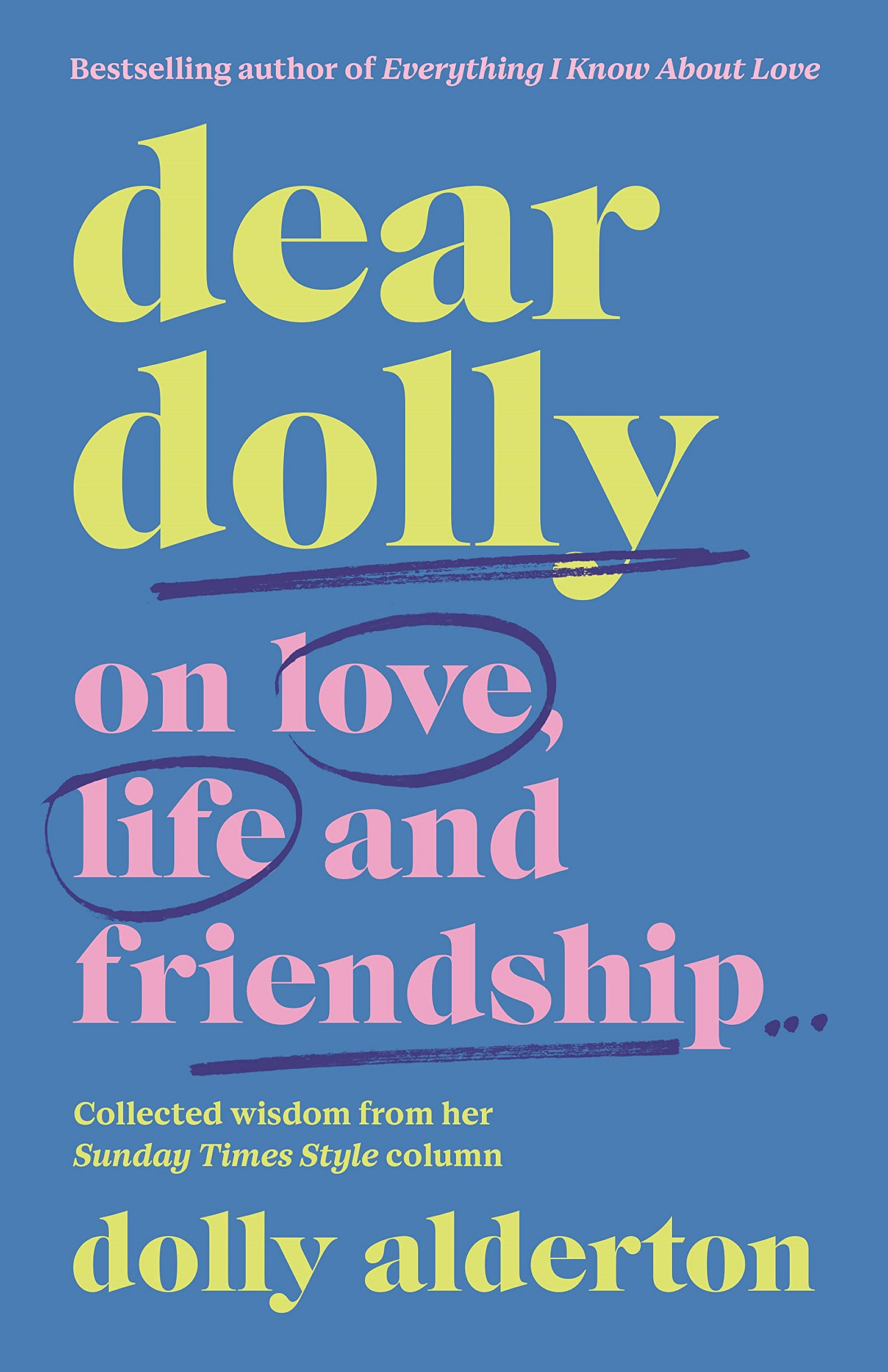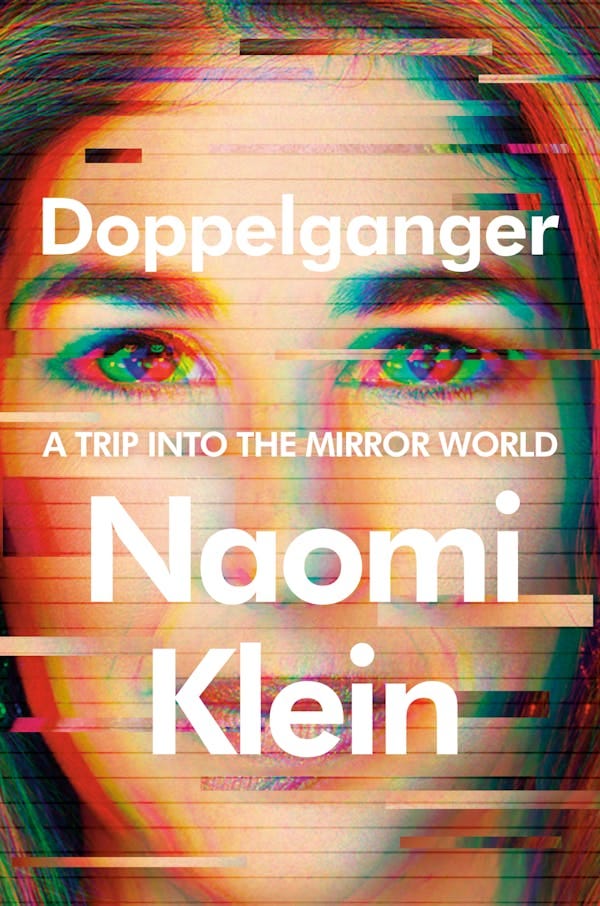what I read last week
whale fall, evenings & weekends, death alley, nightbitch, a visit from the goon squad, dear dolly, doppelganger
So, I randomly read two (very different) books that opened with a beached whale — Whale Fall (set in 1938 in Wales) and Evenings and Weekends (set in 2019 in London).
Whale Fall by Elizabeth O’Connor
Whale Fall opens in the fall of 1938 with a dead whale washing ashore on a remote island off the coast of Wales. The villagers are unsure what the whale portends, but “it felt as though something was circling us, waiting to land against the shore.”
Eighteen-year-old Manod narrates the novel. She lives on this three-mile square island (population 47) with her fisherman father and twelve-year-old sister, Llinos. Shortly after the whale washes ashore, two Oxford anthropologists, Edward and Joan, arrive on the island and hire Manod as their assistant and translator. Manod dreams of a better life on the mainland (Her mother often said before her death: “There’s no job for a woman to get except wife.”).
This book blew me away — it’s an incredible debut by Elizabeth O’Connor and reminded me of Claire Keegan’s prose. The decomposing whale mirrors the erosion of the isolated island lifestyle. The sea also literally “eats away at the paint” on their house, and World War II is imminent (threatening to end this way of life).
O’Connor plays with perspectives through the anthropologist gaze (I also loved this device in Euphoria and Hot Milk). Joan idealizes isolation and describes the island “of a place untouched by cities, where the people were like wildflowers.” Manod has more of a realist perspective. This book was captivating — I recommend it if you like historical literary fiction (or don’t know what to read after finishing all of Claire Keegan’s books)!
Rating: 3.8/5
Genre: Historical Fiction; Literary Fiction
Evenings & Weekends by Oisín McKenna
Evenings and Weekends also opens with a beached whale, but this time, it is in the Thames River in June 2019. McKenna focuses on the lives of several Londoners (friends, family, and acquaintances) as they approach a summer solstice party during a heatwave. There are four primary perspectives: Maggie (a pregnant artist/waitress), her partner Ed (a struggling bike courier with a secret past with Maggie’s best friend, Phil), Phil (Maggie’s best friend who is in an open relationship with a man named Keith), and Rosaleen (Phil’s sick mother).
This book was marketed (like many other books) as “perfect for fans of Sally Rooney.” I definitely succumbed to this marketing, as I wait for Rooney’s newest book to come out (Intermezzo will be published on September 24). I enjoyed McKenna’s prose and the interconnected storylines, but I think there were potentially too many characters. While the blurb says he focuses on four individuals, he spends considerable time on ancillary characters and perspectives. I sometimes got bored with some of these (superfluous) characters.
Rating: 3.7/5
Genre: Contemporary Fiction; Literary Fiction
Death Valley by Melissa Broder
Death Valley is a surreal tale. It centers on an unnamed writer who escapes to the Mojave Desert from LA. She feels “empty” as she navigates “anticipatory grief” (her father is fighting for his life in the hospital after a car crash, and her husband suffers from a mysterious chronic illness). In Death Valley, she stays at a Best Western, eats at diners, Mexican restaurants, and Wendy’s, and goes on a series of hikes that read like acid trips.
I really enjoyed this! It is similar to Ripe (which I read last week), My Year of Rest and Relaxation, and The Guest — The narrators have breakdowns that read like fever dreams.
Rating: 3.6/5
Genre: Contemporary Fiction; Literary Fiction (Messy Women - Dark)
Food Pairing: Wendy’s Frosty
Nightbitch by Rachel Yoder
I also read Nightbitch this week, which was pretty dark and twisted. An artist-turned-stay-at-home mom becomes convinced she’s becoming a dog as she cares for her toddler son. This book was fantastic — it veers into magical realism while examining the often thankless tasks of early motherhood.
Here are a few of my favorite quotes:
She wanted to tell the girl: It’s complicated. I am now a person I never imagined I would be, and I don’t know how to square that. I would like to be content, but instead I am stuck inside a prison of my own creation, where I torment myself endlessly, until I am left binge-eating Fig Newtons at midnight to keep from crying. I feel as though societal norms, gendered expectations, and the infuriating bluntness of biology have forced me to become this person even though I’m having a hard time parsing how, precisely, I arrived at this place. I am angry all the time. I would one day like to direct my own artwork toward a critique of these modern-day systems that articulates all this, but my brain no longer functions as it did before the baby, and I am really dumb now. I am afraid I will never be smart or happy or thin again. I am afraid I might be turning into a dog. Instead, she said, smiling, I love it. I love being a mom.
Was it her fault that she had bought into the popular societal myth that if a young woman merely secured a top-notch education she could then free herself from the historical constraints of motherhood, that if she simply had a career she could easily return to work after having a baby and sidestep the drudgery of previous generations, even though having a baby did not, in any way, represent a departure from work to which a woman might, theoretically, one day return. It actually, instead, marked an immersion in work, an unimaginable weight of work, a multiplication of work exponential in its scope, staggering, so staggering, both physically and psychically (especially psychically), that even the most mentally well person might be brought to her knees beneath such a load, a load that pitted ambition against biology, careerism against instinct, that bade the modern mother be less of an animal in order to be happy, because—come on, now—we’re evolved and civilized, and, really, what is your problem? Pull it together. This is embarrassing.
Rating: 3.6/5
Genre: Contemporary Fiction; Literary Fiction (Messy Women - Dark)
TV/Movie Pairings: Yellowjackets
Food Pairing: Steak tartare
A Visit from the Goon Squad
I finally read A Visit from the Goon Squad this week (which won the Pulitzer Prize for Fiction in 2011 and has been gathering dust on my shelf ever since). It’s a “novel in stories” told in thirteen loosely connected stories spanning about forty years.
The novel revolves around the friends, family, and acquaintances of Bennie Salazar, a record executive, and Sasha, his former assistant in New York. The stories play out all over the world (in New York, San Francisco, Italy, and Kenya), and the chapters echo each other like memories.
My favorite stories were the first (when we meet Sasha in her mid-thirties as she struggles with her compulsion to steal), one set on a Kenyan safari, and the last. It was also interesting to read Egan’s 2011 perspective on technology (one chapter is told in PowerPoint slides, and another discusses our collective addiction to cell phones).
Rating: 4/5
Genre: Contemporary Fiction; Literary Fiction; Short Stories (Novel in Stories)
Dear Dolly: On Love, Life and Friendship by Dolly Alderton
Dolly Alderton is one of my favorite writers (I loved her other books — Everything I Know About Love, Ghosts, and Good Material). This week, I listened to Dear Dolly, a collection of her best Times advice columns. This book reads like an older sister or cool aunt advising you on relationships, dating, friendships, body image, and family. Dolly narrates this short audiobook (it’s just under 5 hours), giving it a level of intimacy. This book wasn’t quite as good as Cheryl Strayed’s Tiny Beautiful Things (also a collection of advice columns), but I really enjoyed it!
Rating: 3.5/5
Genre: Nonfiction - Essay Collection
Audio: Narrated by Dolly herself (4 hr 48 min).
TV/Movie Pairings: Everything I Know About Love
Doppelganger: A Trip Into the Mirror World by Naomi Klein
I’ve had Doppelganger on hold at the library for months, and it finally was my turn to read it this week. I was really excited to read this book — I love a trip into the mirror world (Trick Mirror by Jia Tolentino, No One Is Talking About This by Patricia Lockwood). Doppelganger started out this way, but the book became increasingly disjointed. It’s a challenging book for me to review.
The premise of Doppelganger is that Naomi Klein has been increasingly mistaken for Naomi Wolf and vice versa. Both Naomis are white Jewish female writers and activists. While they both began their careers on the political left, Wolf has become a bit of a conspiracy theorist and anti-vaxxer. People on Twitter would confuse the two, and the more Klein tried to distinguish herself from Wolf, the more the algorithms confused them. (To be honest, I hadn’t heard of either Wolf or Klein before picking up Doppelganger, but according to Klein, tens of thousands of Twitter users would like their Tweets.)
Doppelganger is part memoir and part historical/cultural analysis. She uses the two Naomis to discuss the idea of the double in the internet age (we all create digital doppelgangers). The first third of this book fascinated me — Klein weaved in cultural and historical examples of doppelgangers (referencing Freud, Hitchcock, Borges, etc.). It would have made an excellent article.
Unfortunately, Klein didn’t stop there. The last two-thirds of the book completely lost me. I got tired of hearing about Wolf’s (and Steve Bannon’s) anti-vax theories as well as Klein’s political views and personal opinions of Wolf. Klein also broadened her doppelganger thesis to include basically all of modern history. She discussed colonialism, Israel, and how neoliberal forces exploited COVID (citing healthcare privatization and Google Classroom). Ironically, Klein’s own views started to read like conspiracy theories to me. To enjoy this book, you must like Klein’s writing or at least subscribe to her particular political views.
Rating: 2/5
Genre: Nonfiction - Memoir
Articles/podcasts that I couldn’t stop thinking about:
This Ezra Klein podcast on children, meaning, media, and psychedelics.
(Related to the podcast above) Jia Tolentino’s article on CoComelon and commanding children’s attention.
What I cooked:
I made this Via Carota salad dressing again — it never disappoints! (I didn’t have thyme or any special vegetables, which was still incredible.)
We ate a lot of Molly Baz’s orzo al limone leftovers.
This salad is the perfect way to eat day-old salmon. We love this recipe so much that we will make extra salmon so we can have it the next day!
We made a lot of BLTs with heirloom tomatoes (the best part of summer).






